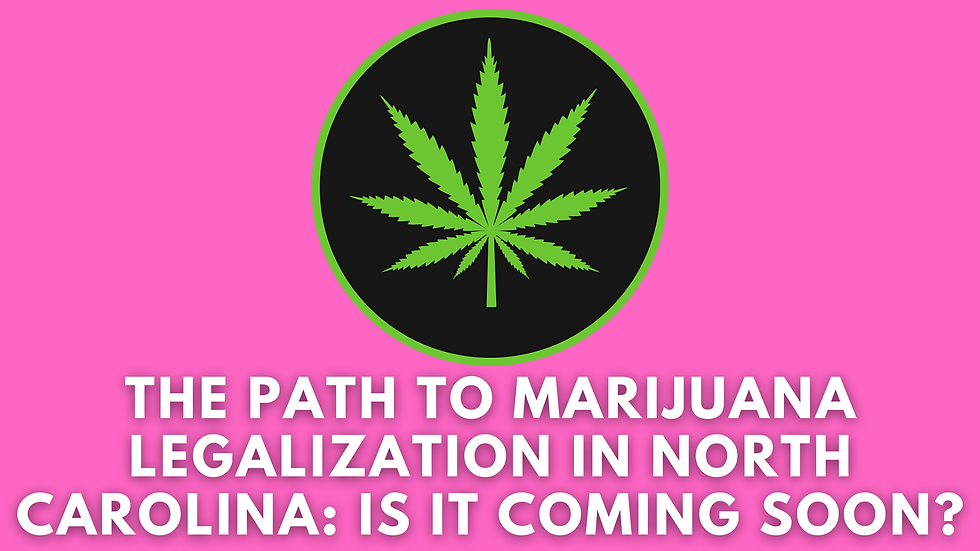How Medical Marijuana Can Help Epilepsy
- Olivia Castro
- Feb 11, 2021
- 2 min read

Can Medical Marijuana Help Epilepsy?
Epilepsy is the fourth most common neurological disease, and there are about 3.4 million people living with this condition nationwide. Right now there is no cure to Epilepsy, but thankfully, there are ways to manage the condition to keep seizures and side effects to a minimum. One such treatment is medical marijuana, which is now available in North Carolina!
What is Epilepsy?
Epilepsy is a chronic, neurological disease that causes recurrent seizures. According to the Epilepsy Foundation, an estimated 65 million people worldwide are living with the condition, and 1 in 26 people in the United States will develop epilepsy at some point in their lives. Someone is diagnosed with epilepsy if they have two or more seizures without an apparent, treatable, or reversible cause.
Under the umbrella of epilepsy, one may experience many different types of seizures. The two major categories of seizures are generalized seizures, which affect both sides of the brain, and focal seizures, which start in one specific area of the brain.
How Medical Marijuana Can Help Epilepsy and Other Seizure Disorders
Currently, the most widely prescribed treatment for epilepsy is pharmaceutical medication. Despite the wide variety of medications available, many patients still suffer from symptoms even while on medication. Also, roughly a third of people with epilepsy have treatment-resistant epilepsy, meaning that traditional medications do not help their condition. Without a way to manage seizures, epilepsy can be a highly debilitating disease for those affected.
Those that choose to treat their epilepsy with medication often experience unpleasant side effects such as dizziness, sleep disturbances, skin rashes, memory problems, and more.
Studies on medical marijuana for epilepsy treatment have shown that cannabidiol, a non-psychoactive component of marijuana, is effective at controlling and reducing occurrence of seizures. Cannabidiol (CBD) will not produce the “high” that many people associate with marijuana, for as a non-psychoactive substance, CBD does not seriously impact one’s mental state. Rather, CBD works with receptors in the body to impact things such as pain, inflammation, and anxiety. Notably, CBD also functions as an anticonvulsant. This is a great solution for those who are looking for the benefits of medical marijuana without the “high.”
A study published in The Lancet Neurology in 2015 examined the impact of CBD on treatment-resistant types of epilepsy. This study showed that CBD can reduce seizure frequency for people who have not had successful treatment with other medication. The fact that CBD has been proven effective for treatment-resistant types of epilepsy opens the door for thousands of people who previously were living with epilepsy without any way to manage their symptoms. Researchers found minimal adverse effects related to the CBD treatment which is much better than what comes with traditional treatments.
The efficacy of cannabis for treating epilepsy is promising. If you or someone you love is living with epilepsy and is interested in the benefits of CBD, discuss medical marijuana with your doctor. If you would like to learn more about medical marijuana and take the first step towards treating epilepsy with CBD, please reach out. We’re here to help!



Comments